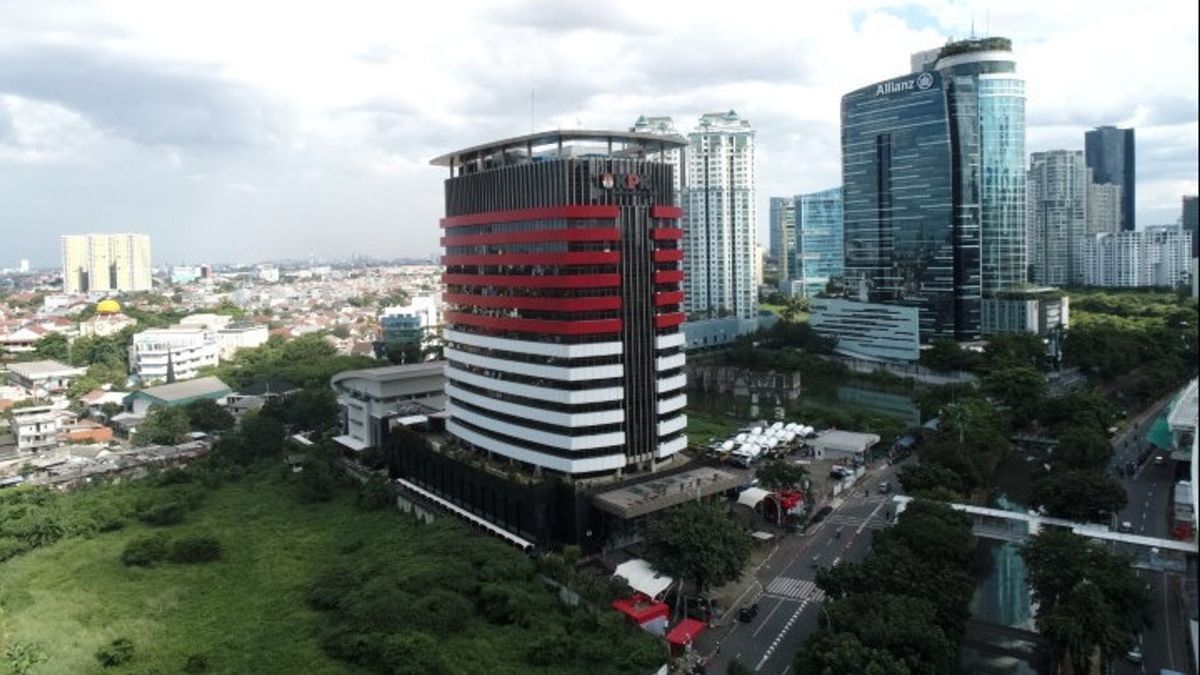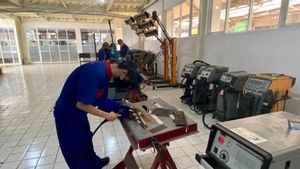
JAKARTA - Indonesia Corruption Watch (ICW) researcher Kurnia Ramadhana rejects the termination of investigations that the Corruption Eradication Commission (KPK) can carry out in accordance with the KPK Law Number 19 of 2019.
He considered that the plan to stop investigating corruption cases by issuing a letter of termination of investigation (SP3) and prosecution is a series of bad effects of changes to institutional regulations due to the revision of the law that occurred in 2019.
"Since the beginning, ICW has opposed all the substances contained in Law Number 19 of 2019, including regarding SP3. For this reason, the plan to stop the case that was just submitted by the leadership is a series of bad effects of changes to KPK institutional regulations," said Kurnia in his written statement. quoted Thursday, March 4.
He also considered that there were several things that became the basis for ICW's rejection of the KPK's authority to issue SP3. First, the vulnerability of this process to being made a corruption case for corruption.
"Because, it is not impossible that in the midst of current leadership problems, the assessment of the feasibility of a case is continued or not based on a mere view of subjectivity," he said.
The second reason for rejection, said Kurnia, was that the issuance of the SP3 was contrary to the Constitutional Court decision No. 006 / PUU-1/2003 dated March 30, 2004. In that decision, it was clearly stated that there was a concern about abuse of authority if the KPK was given the ability to issue SP3.
"Third, there is a two-year time limitation stated in Law 19/19. This is strange. Interpreting corruption as an extraordinary crime should have tightened the space for stopping investigations or prosecutions," he said.
"On the contrary, in the Criminal Procedure Code there is absolutely nothing to mention about the time limit for a law enforcer to handle a case. Practically Article 109 paragraph (2) of the Criminal Procedure Code only alludes to: insufficient evidence is not obtained, it is not a criminal act, and termination of investigation for the sake of law ( the suspect passed away, nebis in idem, or expired), "added Kurnia.
So, instead of issuing an SP3, he considered that there were several ways that the KPK could take to stop a case.
First, the anti-graft commission can delegate cases deemed to have insufficient preliminary evidence to other law enforcers such as the police or the prosecutor's office. When the legal process is running, later other law enforcers will issue SP3.
The second way, the KPK can stop the case handling process from the level of investigation. This can be done because the definition of investigation in the KPK Law has a higher degree than that of the Criminal Procedure Code.
"In the Corruption Eradication Commission Law, the investigation has talked about finding sufficient preliminary evidence while the Criminal Procedure Code has not," said Kurnia.
Furthermore, Kurnia said there were several arguments to refute the logic of the legislators when imposing a two-year time limit for handling cases at the KPK.
He emphasized that every corruption case that contains elements of state losses requires collaboration with the auditors.
"So the implication is that the time for handling a case cannot be ascertained that it will be completed in a short time," he explained.
He conveyed, the nature of corruption crimes which include transnational aspects, certainly becomes an obstacle for law enforcers to quickly resolve a case.
"Because, it is not uncommon for the perpetrators of corruption to try to trick law enforcers by distributing the proceeds of crime to several countries," he concluded.
The English, Chinese, Japanese, Arabic, and French versions are automatically generated by the AI. So there may still be inaccuracies in translating, please always see Indonesian as our main language. (system supported by DigitalSiber.id)








